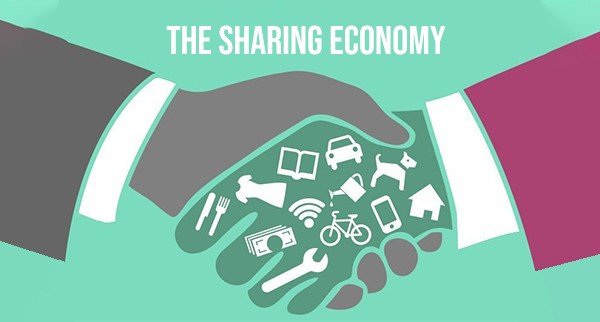In recent years, a transformative shift has occurred in the way people consume goods and services, driven by the rise of the sharing economy. The sharing economy, also known as collaborative consumption, is a socio-economic system built around the sharing, renting, and borrowing of resources, assets, and services among individuals and communities. From ride-sharing and home-sharing to peer-to-peer lending and co-working spaces, the sharing economy has revolutionized the way we live, work, and interact with one another. In this blog post, we’ll explore the concept of the sharing economy, its benefits and challenges, and how participating in collaborative consumption can help pad your wallet and save you money.
Understanding the Sharing Economy:
The sharing economy is a decentralized and peer-to-peer marketplace where individuals and businesses share resources, assets, and services with one another for mutual benefit. Unlike traditional consumption models based on ownership and possession, the sharing economy emphasizes access over ownership, allowing people to leverage underutilized assets and resources more efficiently. The sharing economy is powered by technology platforms and digital marketplaces that connect users with available resources and facilitate transactions, making it easier than ever to participate in collaborative consumption.
Key Components of the Sharing Economy:
The sharing economy encompasses a wide range of activities and services, including:
- Ride-Sharing: Platforms like Uber, Lyft, and Didi Chuxing connect riders with drivers for on-demand transportation services, enabling convenient and affordable alternatives to traditional taxis and car ownership.
- Home-Sharing: Platforms like Airbnb, Vrbo, and HomeAway allow homeowners to rent out their properties to travelers and guests, providing flexible accommodation options and supplemental income opportunities.
- Peer-to-Peer Lending: Platforms like Prosper, LendingClub, and Kiva facilitate peer-to-peer lending, allowing individuals to borrow money from other individuals or investors without the need for traditional financial institutions.
- Co-Working Spaces: Co-working spaces like WeWork, Regus, and Industrious provide shared workspaces and amenities for freelancers, remote workers, and small businesses, fostering collaboration, networking, and productivity.
- Goods Rental: Rental platforms like Rent the Runway, Turo, and Rent-A-Center allow users to rent clothing, accessories, cars, electronics, and other goods on a short-term or long-term basis, reducing the need for ownership and upfront costs.
- Task and Skill Sharing: Platforms like TaskRabbit, Upwork, and Fiverr connect individuals with freelancers and service providers for tasks and projects ranging from household chores and errands to professional services and creative projects.
Benefits of Participating in the Sharing Economy:
Participating in the sharing economy offers several key benefits for consumers and providers alike:
- Cost Savings: Sharing resources and services through the sharing economy can lead to significant cost savings compared to traditional ownership or consumption models. By renting, sharing, or borrowing instead of buying outright, consumers can access goods and services at a fraction of the cost.
- Flexibility and Convenience: The sharing economy offers greater flexibility and convenience for consumers, allowing them to access resources and services on-demand and as needed. Whether it’s a ride, a place to stay, or a skill to hire, the sharing economy provides convenient solutions to everyday needs.
- Monetization Opportunities: For providers, the sharing economy presents opportunities to monetize underutilized assets and resources, such as spare bedrooms, idle cars, or unused skills. By renting out or sharing their assets with others, providers can generate supplemental income and offset expenses.
- Sustainability and Environmental Benefits: The sharing economy promotes sustainability and environmental conservation by encouraging resource sharing and reducing waste and consumption. By extending the lifespan of goods and assets through sharing and collaborative consumption, the sharing economy helps minimize environmental impact and promote responsible consumption.
- Community Building and Social Connection: Participating in the sharing economy fosters community building and social connection by facilitating interactions and exchanges among individuals and communities. Whether it’s sharing a ride, staying in someone’s home, or hiring a local service provider, the sharing economy promotes trust, cooperation, and social capital.
Challenges and Considerations:
While the sharing economy offers numerous benefits, it also poses some challenges and considerations for participants:
- Trust and Safety: Trust and safety are paramount in the sharing economy, as participants rely on digital platforms and online reviews to assess the credibility and reliability of service providers and users. Ensuring trust and safety requires robust verification processes, identity verification, and measures to prevent fraud and misconduct.
- Regulatory and Legal Issues: The sharing economy operates within a complex regulatory and legal landscape, with regulations varying by jurisdiction and industry. Providers and users must navigate legal requirements, licensing, taxation, insurance, and liability issues to ensure compliance and mitigate risks.
- Quality and Consistency: Maintaining quality and consistency can be challenging in the sharing economy, especially when dealing with peer-to-peer transactions and services. Providers must deliver consistent and reliable experiences to build trust and reputation, while users must manage expectations and verify the quality of goods and services received.
- Market Saturation and Competition: As the sharing economy grows and matures, market saturation and competition may increase, making it more challenging for providers to differentiate themselves and attract customers. Providers must continuously innovate and differentiate their offerings to stand out in a crowded marketplace.
Strategies for Maximizing Savings and Profits:
To maximize savings and profits in the sharing economy, consider the following strategies:
- Comparison Shopping: Compare prices, reviews, and terms of service across different sharing economy platforms to find the best deals and value for your money.
- Utilize Referral and Loyalty Programs: Take advantage of referral and loyalty programs offered by sharing economy platforms to earn discounts, credits, or rewards for referring friends, family, or colleagues.
- Optimize Asset Utilization: If you’re a provider, optimize the utilization of your assets and resources by renting them out or sharing them with others when not in use. Maximize revenue opportunities by setting competitive prices and leveraging peak demand periods.
- Negotiate Terms and Rates: Negotiate terms and rates with service providers or renters to secure favorable terms and discounts that align with your budget and preferences.
- Maintain Flexibility: Stay flexible and open-minded in your consumption and investment decisions, and be willing to adapt to changing market conditions and opportunities.
Conclusion:
In conclusion, the sharing economy offers a wealth of opportunities for consumers and providers to save money, generate income, and foster community connections through collaborative consumption. By embracing the principles of renting, sharing, and collaborative consumption, individuals and communities can unlock new possibilities for cost savings, convenience, and sustainability. Whether you’re looking to save money on everyday expenses, generate supplemental income, or reduce your environmental footprint, the sharing economy provides innovative solutions and opportunities for individuals to pad their wallets and thrive in a rapidly changing world. Start exploring the sharing economy today and discover the benefits of collaborative consumption for yourself.



